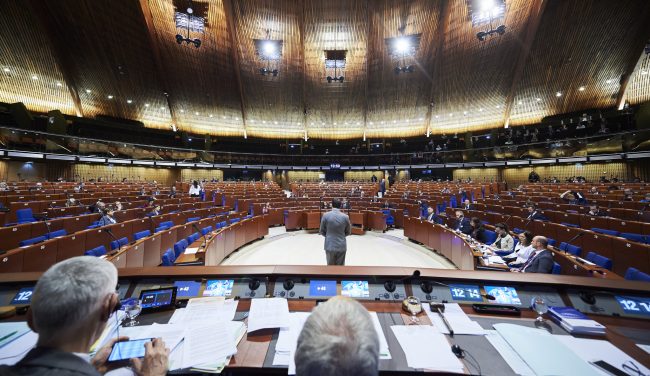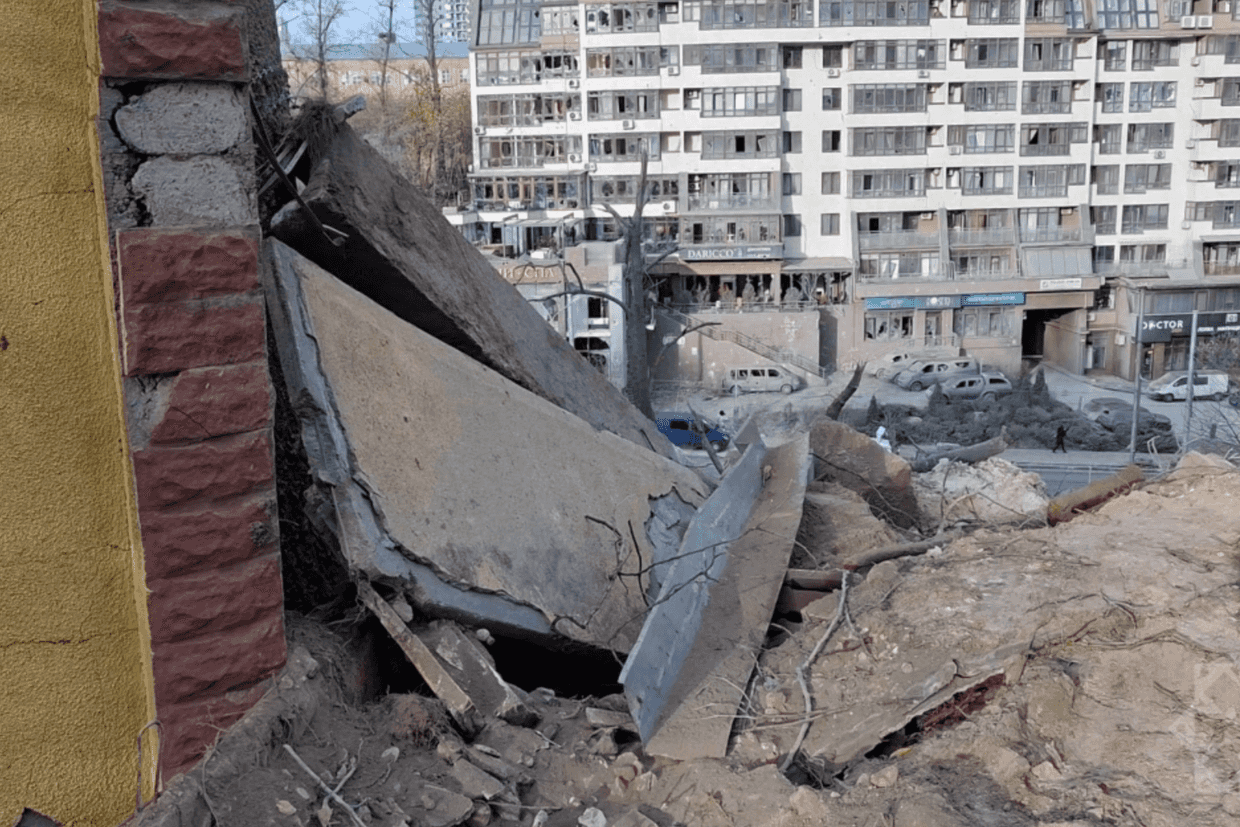

 The Parliamentary Assembly of the Council of Europe (PACE) has concluded that corruption allegations involving Azerbaijan and a number of current and former MPs from several European countries are true and has declared a policy of zero tolerance of corruption to ‘restore its credibility’.
The Parliamentary Assembly of the Council of Europe (PACE) has concluded that corruption allegations involving Azerbaijan and a number of current and former MPs from several European countries are true and has declared a policy of zero tolerance of corruption to ‘restore its credibility’.
A resolution was adopted on Thursday following a debate in PACE about an internal investigation into corruption within PACE.
According to the investigation, which was prepared by three former judges from the UK, France, and Sweden and published on 22 April, a number of former MPs at PACE received money to lobby for Azerbaijan during PACE’s work. The report also said that several current and former members may have engaged in ‘corruptive’ activities in favour of Azerbaijan.
[Read more on OC Media: Council of Europe MPs suspected of ‘corruptive’ activities for Azerbaijan]
‘The allegations made by non-governmental organisations and by the media through reports, reporting or journalistic inquiries, which had until recently been criticised, challenged or denied, are now indisputable’, the resolution reads.
PACE has invited member states’ national parliaments and their national delegations to the Assembly, as well as the national governments ‘to take the necessary measures in respect of the cases mentioned’ and report back to the Assembly by the end of 2018.
The Assembly stressed that ‘although the report deals principally with allegations and facts concerning Azerbaijan, similar practices have clearly also been used by the authorities and parliamentary delegations of other member States’.
The majority of 123 MPs voted in favour of the resolution, with 9 MPs voting against, and 10 abstaining. The entire Azerbaijani delegation to the Assembly voted against it, as well as the only MP representing Turkey. One Italian and one Serbian MP also voted against it, with the rest of the Serbian delegation abstaining.
The two members of the Georgian delegation voted in favour of the resolution, while Armenia’s MPs were absent during the vote. Russia’s voting rights were suspended in 2014 following the Russian annexation of Crimea and military intervention in eastern Ukraine.
Members of the Azerbaijani and Turkish delegations have accused the authors of the report of bias and attempting to tarnish Azerbaijan’s reputation.
The head of Azerbaijani delegation, Samad Seyidov, who was accused in the report of breaching the organisation’s code of conduct, said during the Thursday’s session that ‘any attempt to shame [Azerbaijan] (…) is the real corruption’.
Azerbaijani MP Asim Mollazade implied that Azerbaijan was chosen as the investigation’s sole target because of growing Islamophobia in Europe and said that ‘European Armenian organisations, and all countries that are behind the Armenian occupation of Azerbaijan’ had an interest in targeting Azerbaijan.
Another Azerbaijani MP, Elshad Hasanov, said that the report was ‘based on rumours’ and called journalistic investigations by the ‘so called’ Organised Crime and Corruption Reporting Project (OCCRP) into corruption ‘fake news’.
The OCCRP’s website has been blocked in Azerbaijan since September 2017, after they published the results of a major investigation called the Azerbaijani Laundromat, which set in motion Council of Europe’s probe into corruption in PACE.
[Read more about OCCRP’s Azerbaijani Laundromat: Investigation reveals secret $3 billion UK-based Azerbaijani slush fund]









